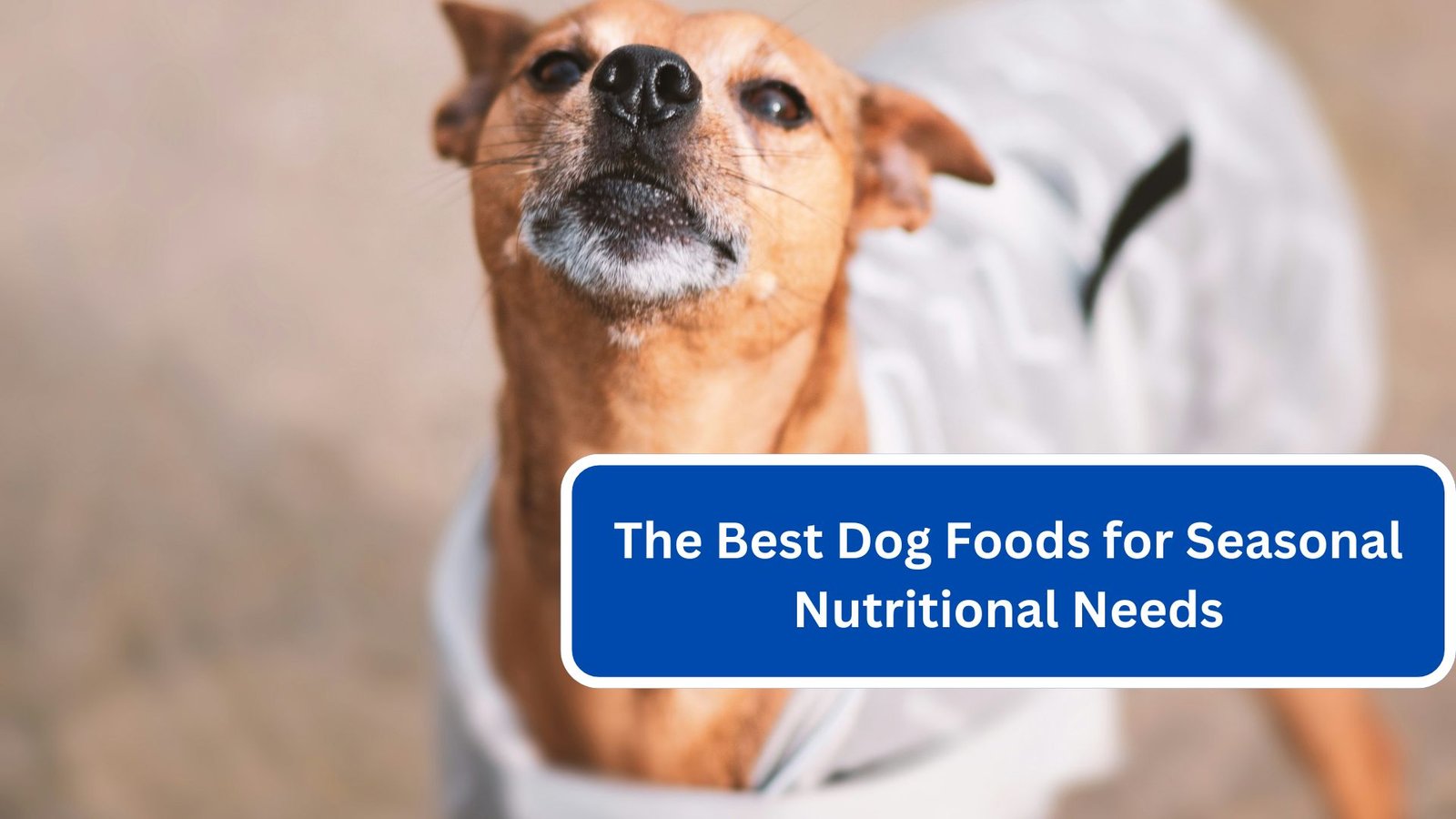As the seasons change, so do the nutritional needs of your dog. Different weather conditions, activity levels, and even allergies can influence what’s best for your furry friend. This guide explores the best dog foods tailored to seasonal nutritional needs, ensuring your pup stays healthy and happy all year round.
Understanding Seasonal Nutritional Needs
1. Winter Needs
In colder months, dogs may require more calories to maintain their energy levels and body heat. They may also need increased protein and fat for warmth and energy.
Key Nutritional Components:
- High Protein: Look for foods with meat as the first ingredient.
- Healthy Fats: Omega-3 and Omega-6 fatty acids help maintain skin health and provide energy.
Recommended Dog Foods:
- High-Calorie Formulas: Foods designed for active or working dogs, such as brands like Orijen or Taste of the Wild, offer higher fat and protein content.
2. Spring Needs
With the arrival of spring, many dogs become more active, which may require adjustments in their diet. Spring is also a time for allergies, so hypoallergenic options can be beneficial.
Key Nutritional Components:
- Allergy Relief: Look for limited ingredient diets with novel proteins (like duck or venison) to minimize allergic reactions.
- Balanced Nutrients: Ensure the diet supports energy without excessive calories.
Recommended Dog Foods:
- Limited Ingredient Diets: Brands like Blue Buffalo Basics or Canidae PURE offer options with fewer ingredients to help with allergies.
3. Summer Needs
During the hot summer months, hydration and weight management are crucial. Dogs can also be more active during this time, so they may need more energy.
Key Nutritional Components:
- Hydration: Foods with higher moisture content, like wet or fresh foods, can help keep your dog hydrated.
- Lower Caloric Options: To prevent weight gain due to reduced activity levels in extreme heat.
Recommended Dog Foods:
- Wet Dog Food: Brands like Wellness CORE or Merrick offer high-quality wet foods that can help with hydration.
- Weight Management Formulas: Options like Hill’s Science Diet Adult Perfect Weight help maintain a healthy weight.
4. Fall Needs
As the weather cools and activities shift indoors, dogs may become less active, which can lead to weight gain. Fall is also a time for seasonal allergies.
Key Nutritional Components:
- Fiber: Helps with digestion, especially as dogs may be less active.
- Antioxidants: Support immune health during seasonal changes.
Recommended Dog Foods:
- High-Fiber Options: Foods like Royal Canin Veterinary Diet Gastrointestinal can help with digestive health.
- Antioxidant-Rich Diets: Look for formulas with fruits and vegetables, such as Nature’s Logic or Solid Gold.
Additional Considerations for Seasonal Feeding
1. Homemade Treats
You can make seasonal treats using ingredients that align with the time of year. For example:
- Pumpkin Treats in Fall: Rich in fiber and vitamins, pumpkin can help with digestion.
- Frozen Treats in Summer: Blend yogurt and fruits like blueberries for a refreshing snack.
2. Hydration
Always ensure fresh water is available, especially during warmer months. Consider adding wet food to their diet in summer for added hydration.
3. Monitoring Weight
Adjust portion sizes based on activity levels. Keeping track of your dog’s weight and body condition can help you tailor their diet more effectively throughout the seasons.
Conclusion
Choosing the right dog food according to seasonal nutritional needs is essential for your dog’s health and well-being. By understanding these needs and selecting high-quality, appropriate foods, you can ensure your furry friend thrives all year long. Always consult with your veterinarian for personalized recommendations based on your dog’s specific health requirements and lifestyle. With the right nutrition, your dog will be ready to enjoy every season to the fullest!

